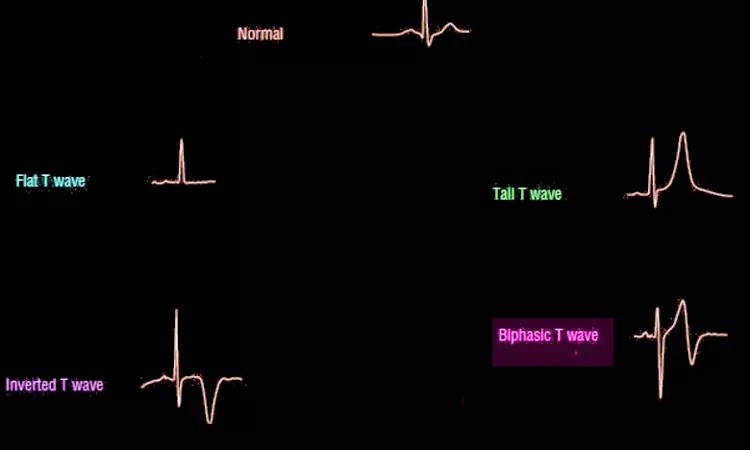- Home
- Medical news & Guidelines
- Anesthesiology
- Cardiology and CTVS
- Critical Care
- Dentistry
- Dermatology
- Diabetes and Endocrinology
- ENT
- Gastroenterology
- Medicine
- Nephrology
- Neurology
- Obstretics-Gynaecology
- Oncology
- Ophthalmology
- Orthopaedics
- Pediatrics-Neonatology
- Psychiatry
- Pulmonology
- Radiology
- Surgery
- Urology
- Laboratory Medicine
- Diet
- Nursing
- Paramedical
- Physiotherapy
- Health news
- Fact Check
- Bone Health Fact Check
- Brain Health Fact Check
- Cancer Related Fact Check
- Child Care Fact Check
- Dental and oral health fact check
- Diabetes and metabolic health fact check
- Diet and Nutrition Fact Check
- Eye and ENT Care Fact Check
- Fitness fact check
- Gut health fact check
- Heart health fact check
- Kidney health fact check
- Medical education fact check
- Men's health fact check
- Respiratory fact check
- Skin and hair care fact check
- Vaccine and Immunization fact check
- Women's health fact check
- AYUSH
- State News
- Andaman and Nicobar Islands
- Andhra Pradesh
- Arunachal Pradesh
- Assam
- Bihar
- Chandigarh
- Chattisgarh
- Dadra and Nagar Haveli
- Daman and Diu
- Delhi
- Goa
- Gujarat
- Haryana
- Himachal Pradesh
- Jammu & Kashmir
- Jharkhand
- Karnataka
- Kerala
- Ladakh
- Lakshadweep
- Madhya Pradesh
- Maharashtra
- Manipur
- Meghalaya
- Mizoram
- Nagaland
- Odisha
- Puducherry
- Punjab
- Rajasthan
- Sikkim
- Tamil Nadu
- Telangana
- Tripura
- Uttar Pradesh
- Uttrakhand
- West Bengal
- Medical Education
- Industry
T-wave abnormalities increase CV events risk and mortality in Diabetic patients

T-wave abnormalities (TWA) are often found on ECG and signify abnormal ventricular repolarisation. A recent study suggests that the presence and magnitude of TWA are associated with increased risk of clinical cardiovascular events and mortality in individuals with diabetes. The study findings were published in the journal Diabetologia on January 08, 2021.
While T-wave abnormalities are associated with subclinical atherosclerosis, the relationship between TWA and hard cardiovascular endpoints is less clear and may differ in the presence of diabetes. Therefore, researchers of the Wake Forest School of Medicine, USA, conducted a study to explore these associations in participants from the Action to Control Cardiovascular Risk in Diabetes (ACCORD) trial.
In the ACCORD trial, researchers included 8176 eligible participants among which 3759 had cardiovascular events, including 1430 deaths (473 of a cardiovascular aetiology), 474 heart failure events, 1452 major CHD events and 403 strokes. They determined TWA as the presence of any Minnesota Codes 5-1 through 5-4 in any lead distribution. They used multivariable Cox proportional hazards models to examine relationships between TWA and clinical cardiovascular events. They also explored the risks conferred by major vs minor TWA, differential effects of TWA by anatomic localisation (anterolateral, inferior or anterior lead distributions), and differing associations in those with or without prevalent CVD.
Key findings of the study were:
• They found that participants with TWA had increased risks of all-cause mortality (HR 1.45), cardiovascular mortality (HR 1.93), congestive heart failure (HR 2.04) and major CHD (HR 1.40 ), but no increased risk of stroke (HR 0.99).
• They noted that the major TWA conferred a higher risk than the minor TWA.
• When TWA was added to the UK Prospective Diabetes Study risk engine, they noted improved discrimination for incident CHD events, but only for those with prevalent CVD.
• TWA to the risk engine, they found improvements in reclassification that were of greater magnitude in those with prevalent CVD.
The authors concluded, "The presence and magnitude of TWA are associated with increased risk of clinical cardiovascular events and mortality in individuals with diabetes and may have value in refining risk, particularly in those with prevalent CVD. "
For further information:
https://link.springer.com/article/10.1007/s00125-020-05337-8
Dr Kartikeya Kohli is an Internal Medicine Consultant at Sitaram Bhartia Hospital in Delhi with super speciality training in Nephrology. He has worked with various eminent hospitals like Indraprastha Apollo Hospital, Sir Gangaram Hospital. He holds an MBBS from Kasturba Medical College Manipal, DNB Internal Medicine, Post Graduate Diploma in Clinical Research and Business Development, Fellow DNB Nephrology, MRCP and ECFMG Certification. He has been closely associated with India Medical Association South Delhi Branch and Delhi Medical Association and has been organising continuing medical education programs on their behalf from time to time. Further he has been contributing medical articles for their newsletters as well. He is also associated with electronic media and TV for conduction and presentation of health programs. He has been associated with Medical Dialogues for last 3 years and contributing articles on regular basis.
Dr Kamal Kant Kohli-MBBS, DTCD- a chest specialist with more than 30 years of practice and a flair for writing clinical articles, Dr Kamal Kant Kohli joined Medical Dialogues as a Chief Editor of Medical News. Besides writing articles, as an editor, he proofreads and verifies all the medical content published on Medical Dialogues including those coming from journals, studies,medical conferences,guidelines etc. Email: drkohli@medicaldialogues.in. Contact no. 011-43720751


